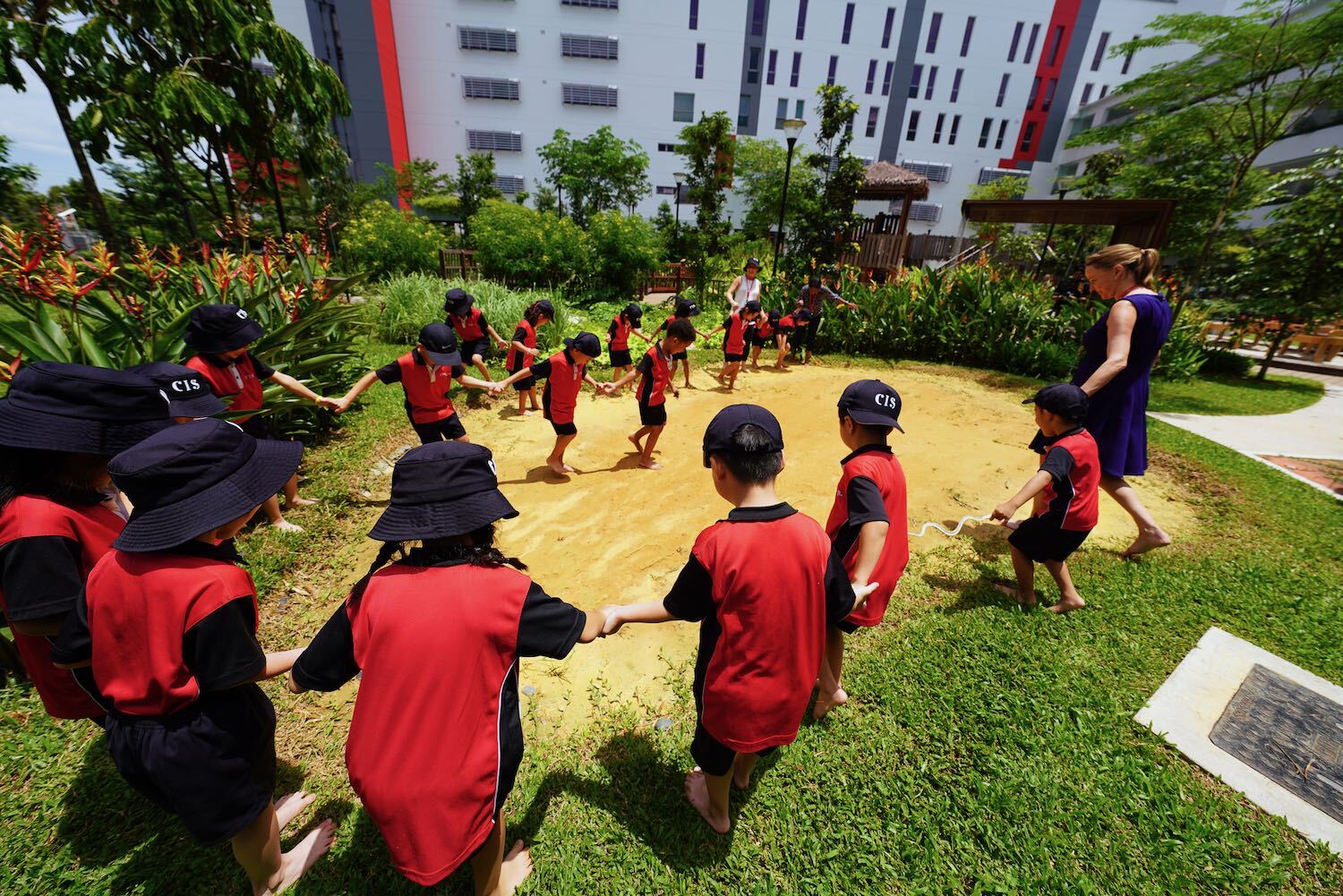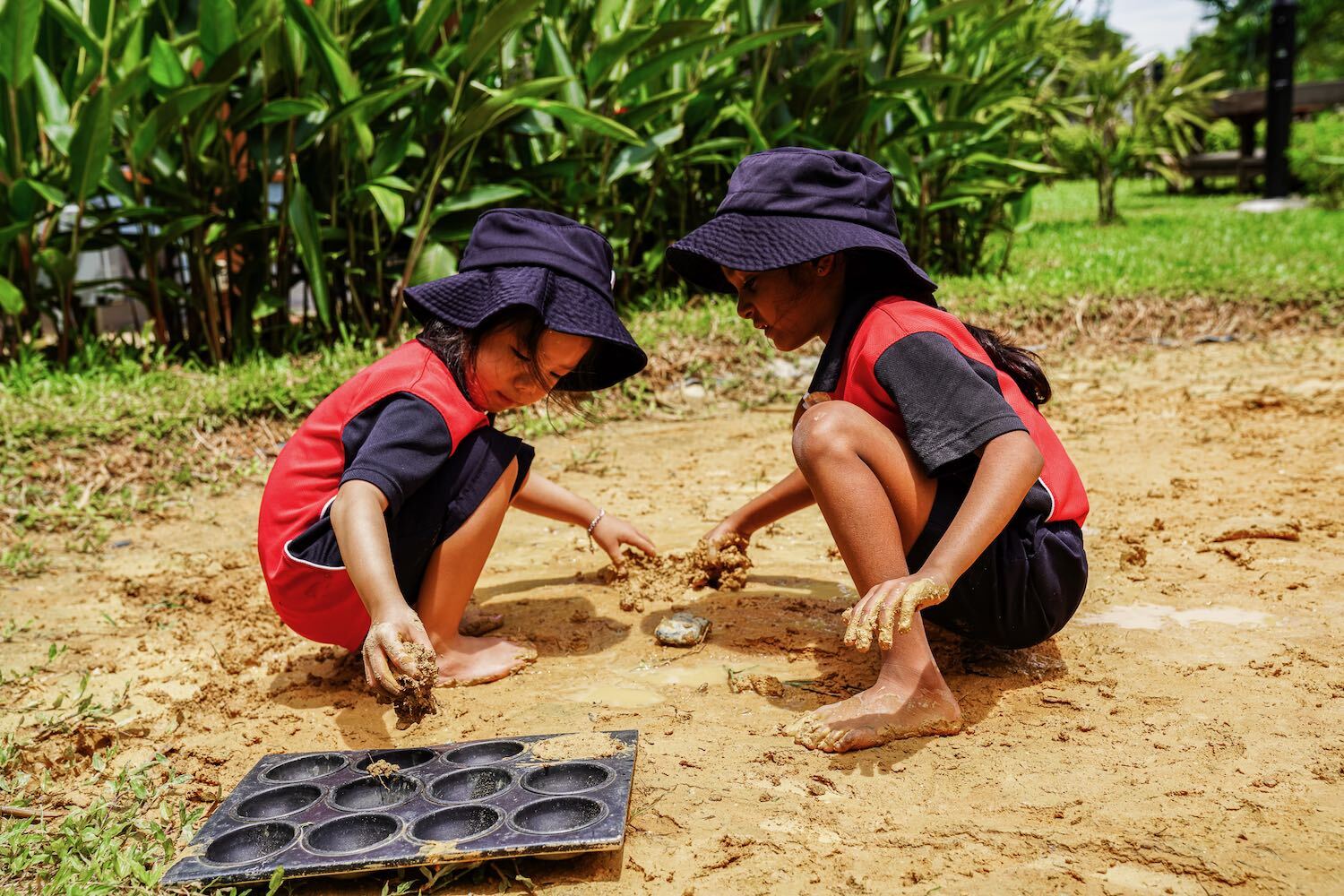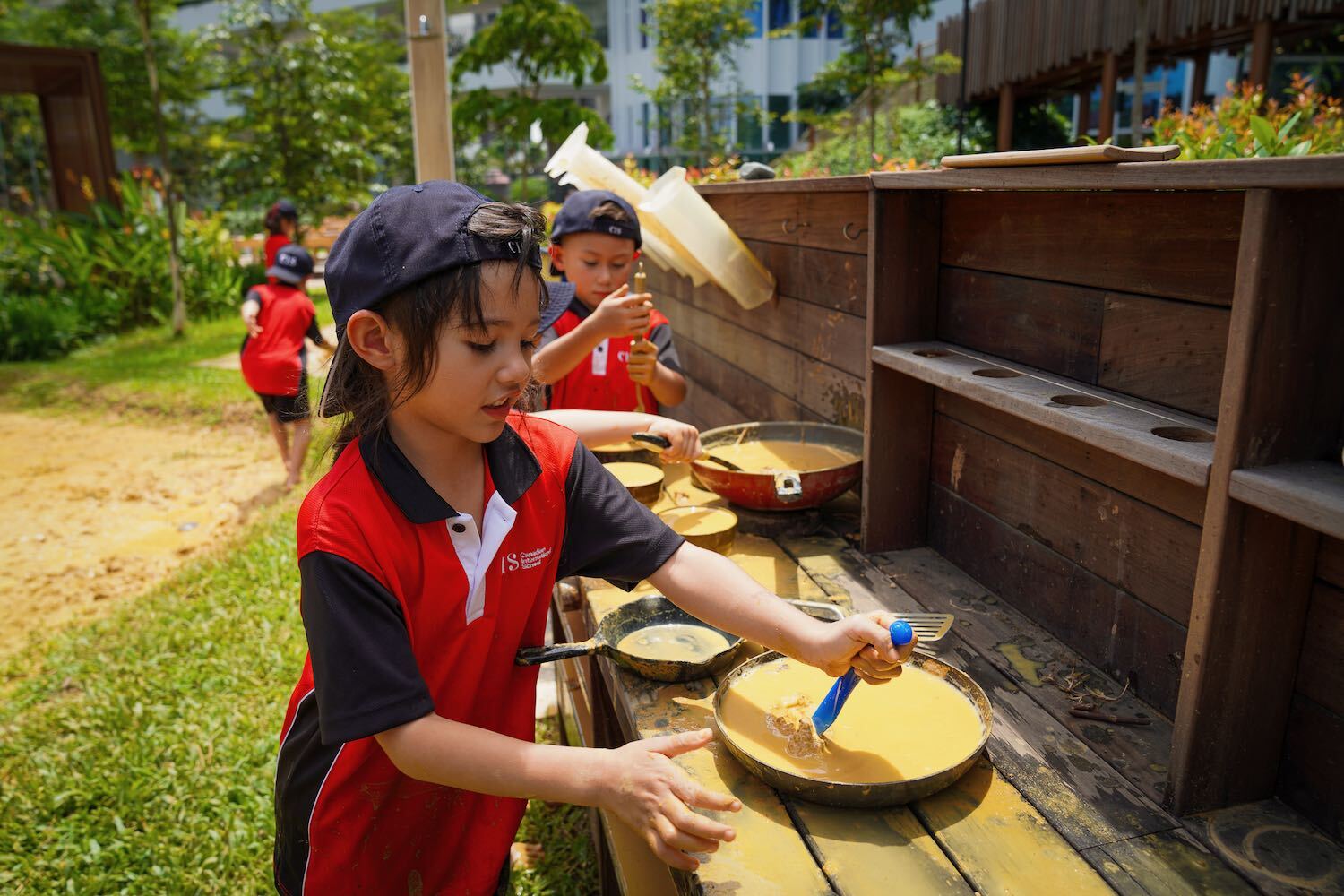Purposeful play and why it is important
“Purposeful play offers boundless opportunities for learning and development. It helps our children develop an infinite number of skills and character traits through teamwork and collaboration. As they explore their imagination and creative ideas during play, children will develop fine and gross motor skills while nurturing their sense of curiosity.” — Angela Speirs

Nurturing Creativity and Curiosity
Research shows young children learn best through play. Purposeful play and inquiry-based learning engage children and trigger their curiosity, allowing them to hone their critical thinking skills, excel at collaborative work and be able to solve problems creatively.
For example, exploring interactive activities such as water play creates a natural and authentic way for children to learn about the properties of water; how it flows, how it can be diverted and held/released. Students can learn the basis of concepts such as volume and capacity through the hands-on learning process.

An approach that sets a solid foundation for academic success
The CIS programme is based on the IB PYP framework which embodies a highly researched and proven approach to inquiry and play-based learning. The Kindergarten programme at CIS combines a range of subjects including STEAM (science, technology, environment, arts, maths), outdoor learning experiences, as well as high quality programmes for literacy, mathematics, expressive arts and foreign languages.
CIS also integrates programmes such as the Letters and Sounds (phonics) scheme from the UK, Story Boxes, and a guided reading approach to promote early literacy skills.
CIS offers daily language acquisition classes as well as their highly successful French-English and Chinese-English bilingual programmes. These programmes focus on fostering confidence and comfort among each child at school, enabling them to grow, discover their strengths and passions, and be empowered to learn.
“Real, authentic play scenarios offer boundless opportunities for learning and development”.
Developing key language and numeracy skills are an essential part of our Kindergarten programme. This is cultivated in our young students through a play-based approach; as an illustration, a classroom exercise at CIS involves recreating a mini hawker centre. In this activity, children set prices, write menus and talk to make-believe customers. During the process students will practise their counting, reading and writing skills; they will also sharpen their problem-solving skills and their ability to predict the actions and feelings of others.

Learning takes place everywhere!
Our indoor and outdoor classrooms are stimulating learning spaces designed to provoke inquiry. The physical setup has a huge impact on how children learn and communicate with the world around them. We have a dedicated Kindergarten wing where natural light filled classrooms spill out into learning pods. We have a purpose-built Outdoor Discovery Centre (ODC) offering children a natural, lucious, green space to explore and learn. The ODC is sectioned to offer students opportunities to develop their gross motor skills by climbing, crawling, jumping and running. There are also sensory areas where children can experiment with water and musical instruments in a garden space where the sights and sounds of nature surround them.
Our goal is to develop each child’s potential and their curiosity and excitement in learning, To equip them with the necessary skills (physical, emotional and intellectual) to succeed through their school life and beyond as the world changes.